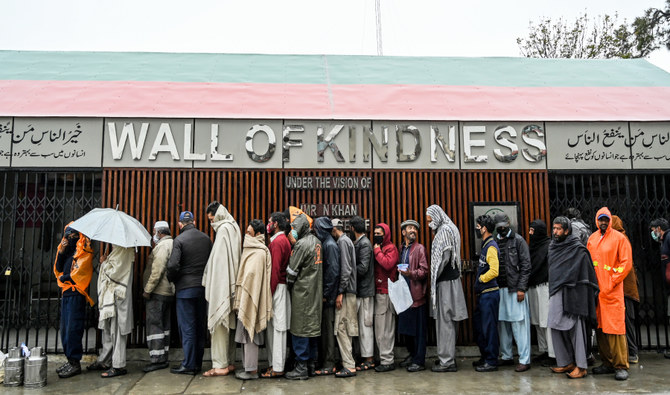KARACHI: Within two days, members of a Pakistani group on WhatsApp raised Rs21 million to help the country’s most vulnerable from sinking into poverty, as many commercial activities have been shut down amid the coronavirus outbreak.
The economic impact of the epidemic has already hit millions of Pakistani families, especially those whose livelihoods are dependent on daily wage work, testing both the government’s response and society’s generosity in a time of a major public health crisis. The latter gives hope.
“Two days back I shared my intention with the group members and the response was overwhelming,” said Muhammad Azfar Ahsan, founder of Corporate Pakistan Group (CPG). “Within two days we have received more than Rs21 million pledges made by our members through WhatsApp. Our target was Rs20 million.”
“The initiative was suggested by CPG member Shamsuddin Shaikh and now other members of the group, Zafar Sobani and Saleem Ranjha are managing this initiative with him,” Ahsan added.
CPG has 256 members, including the country’s top businessmen, policy makers, security officials, and scholars. Many of them pledge further donations.
Since cash has been increasingly seen as a vehicle for coronavirus, no-touch payment tools were used for all contributions, Ahsan said, “All transactions have taken place in virtual space without any physical contact.”

Muhammad Azfar Ahsan, founder of Corporate Pakistan Group. (Supplied)
He said the money raised was not transferred to any private account, but channeled directly to three renowned charities — Akhuwat Foundation, Bait-ul-Salam, and Orange Tree Foundation (Robinhood Army). Equal distribution of the funds was managed by two chartered accountants who volunteered their time for the purpose.
Besides organizing emergency food assistance to poor families affected by the crisis, the group is also going to support frontline medical staff with personal protective equipment, as shortages of masks and protective wear in Pakistan are directly putting at risk the lives of those who are saving others from the coronavirus pandemic
“Orders have been placed for manufacturing of safety kits for doctors and paramedical staff,” Ahsan said. “The state has to play major role but we will continue to play our role with continued funding.
“The first phase is challenging, we are preparing to face the challenges,” he said, admitting that the group is planning response activities for the next couple of weeks, as the health crisis situation is unfolding.
In preparation for other crisis scenarios in the future, by the end of the year the group is going to establish a think tank, Ahsan said, “It would be Pakistan’s biggest policy institute.”












